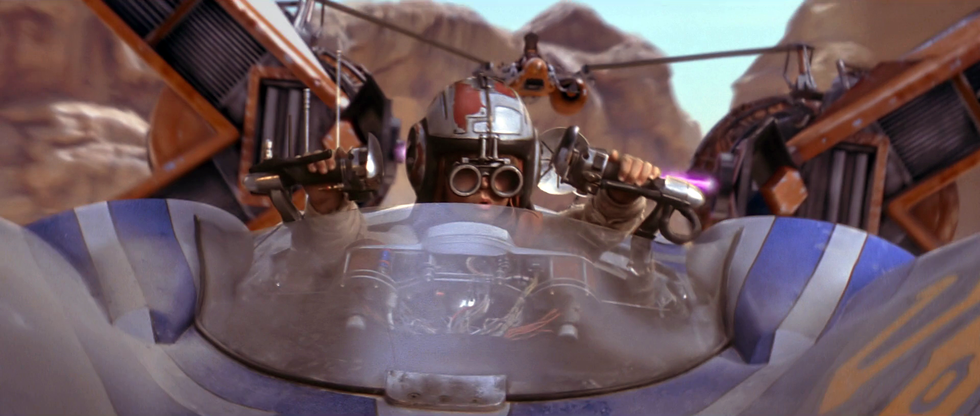Anakin Skywalker’s transformation into Darth Vader might have more to do with deep-rooted psychological issues than just Chancellor Palpatine taking advantage of him. The tragic hero of the Star Wars prequels displays patterns of instability and impulsivity in "Episode I: The Phantom Menace," "Episode II: Attack of the Clones," and "Episode III: Revenge of the Sith," making him a candidate for Borderline Personality Disorder (BPD).
To meet a diagnosis of BPD, one must show a pervasive pattern of instability of interpersonal relationships, self-image, and its effects, which is marked by impulsivity, starting in early adulthood and present in a variety of contexts, as indicated by:
1. Frantic efforts in avoiding real or imagined abandonment
The personality trait that drives the plot for Episode II and III is Anakin’s obsession with abandonment. The only two caregivers and supporters in his life were abruptly murdered — Qui-Gon and his mother — and Anakin couldn’t do anything about their deaths. This led to a real sense of abandonment, and it is why Anakin becomes entirely obsessed with the imagined fear of losing his wife Padmé.
2. Pattern of unstable and intense interpersonal relationships, characterized by the alternation between extremes of idealization and devaluation
Anakin struggled with trusting Obi-Wan from the very beginning of his training. For the majority of Episode II, Obi-Wan was the only person Anakin had in his life, yet Anakin constantly degraded him. He went back and forth between idealizing and devaluing his mentor. In one moment, Anakin would look up to Obi-Wan, but in the next, he would seek nothing more than to conquer over him.
3. Markedly and persistently unstable self-image or sense of self
In the early stages of Anakin’s life, he was led to believe that he was the Chosen One. Anakin grew up with the mindset that he was going to be the most powerful Jedi, and it was reasonably so. The Jedi Council disagreed with Qui-Gon's instincts, and it contributed to their complete ignorance of Anakin's powers. It led to Anakin's fateful turn to the dark side. Changing his name to Darth Vader represented the ultimate sign of an identity disturbance. He went from one end of the spectrum to the other — from being the one to stop evil to being the one who led it.
4. Impulsivity that is potentially self-damaging
Anakin's impulsivity started with pod-racing. It wasn't an activity that most kids on his home-planet partook in because it was actually extremely dangerous — it could result in death. This was overlooked because everyone truly thought Anakin was gifted. Although he definitely was, it doesn’t mean that it wasn’t self-damaging. Anakin began to thrive on impulsivity, and it was something even Obi-Wan noticed at the start of Episode II, commenting on Anakin's utter disregard for his lightsaber while dangling off of a fighter jet.5. Affective instability, due to a marked reactivity of mood
Anakin was irritated about nearly everything. Besides some of the little things he was irritated about (that darn sand), most of his irritation stemmed from everyone’s lack of faith in him. He became exceedingly frustrated with both the Jedi Council and Obi-Wan, and he lamented about their continued disbelief in him. Anakin’s irritation came to a head when he believed that Obi-Wan betrayed him, leading up to only moments prior to the end of Episode III and his transformation to Darth Vader.
6. Inappropriate, intense anger and stress-related paranoia or severe dissociative symptoms
Anakin constantly reacted inappropriately. He had a hard time controlling his anger, and this was especially true when his anger led him to mass murdering the Jedi — including a group of young Padawans. His murderous rampage among the young Jedi trainees was highlighted by his paranoid thoughts about Obi-Wan and Padmé. This same type of stress-driven anger occurred when he murdered the entire tribe of Tuskens on Tatooine. He completely disconnected from reality when he committed these acts—he dissociated from himself.
Anakin developed BPD disorder because of the dysfunction in throughout his entire life. If he was treated a little differently, then his transformation to the dark side could have been avoided entirely (even though this would mean no Star Wars, but that’s beside the point).























